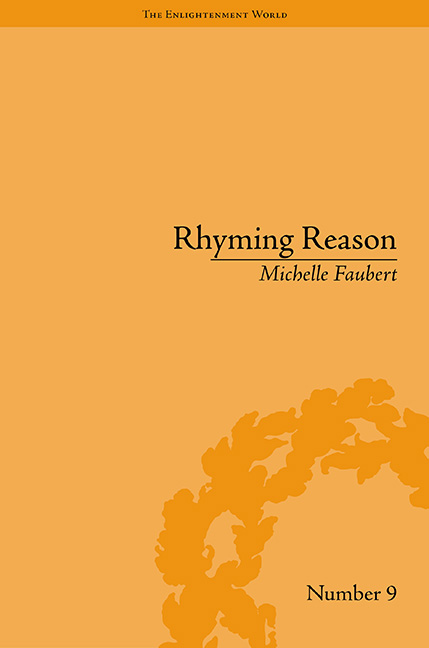Book contents
- Frontmatter
- CONTENTS
- Dedication
- Acknowledgements
- Preface: Psychologist-Poets, Disciplinary Power and the Modern Subject
- Introduction: Romantic-Era Psychologist-Poets and the Historical Context of Early British Psychology
- 1 Erasmus Darwin, James Beattie and Nathaniel Cotton as Pre-Romantic Psychologist-Poets
- 2 The Human Touch: Thomas Bakewell, Andrew Duncan Sr, John Ferriar and Moral Management
- 3 Thomas Trotter, William Perfect and Thomas Beddoes: Nervous Illness and Social Hygiene
- 4 The Unelected Legislator: Associationism and Thomas Brown's Subliminal Poetic Lessons
- Conclusion: Thomas Forster, Phrenology and the Reification of the Disciplines
- Notes
- Works Cited
- Index
2 - The Human Touch: Thomas Bakewell, Andrew Duncan Sr, John Ferriar and Moral Management
- Frontmatter
- CONTENTS
- Dedication
- Acknowledgements
- Preface: Psychologist-Poets, Disciplinary Power and the Modern Subject
- Introduction: Romantic-Era Psychologist-Poets and the Historical Context of Early British Psychology
- 1 Erasmus Darwin, James Beattie and Nathaniel Cotton as Pre-Romantic Psychologist-Poets
- 2 The Human Touch: Thomas Bakewell, Andrew Duncan Sr, John Ferriar and Moral Management
- 3 Thomas Trotter, William Perfect and Thomas Beddoes: Nervous Illness and Social Hygiene
- 4 The Unelected Legislator: Associationism and Thomas Brown's Subliminal Poetic Lessons
- Conclusion: Thomas Forster, Phrenology and the Reification of the Disciplines
- Notes
- Works Cited
- Index
Summary
I. The Popularization of Moral Management in England
While most histories of the development of psychology in England focus on the French roots of moral management, I argue that an essential aspect of the widespread acceptance of this type of psychology was the popularization of its principles in the verse and prose of such psychologist-poets as Thomas Bakewell, John Ferriar and Andrew Duncan Sr. Moral management's great contribution to the understanding and treatment of mental illness was born of its focus on the social life of the patient; for example, social interaction was used as a reward or punishment for good or bad behaviour. All of the psychologist-poets’ work that I explore in this chapter shows this new kind of doctor's social concern, his contribution to an established relationship between the realm of psychology (specifically nerve theory) and literature that helps to expand the current critical narrative about it and the subtle means by which he helped to establish disciplinary power, even as he attempted to share knowledge about psychology in a democratic way.
The apparent goal of all of the moral managers I discuss in this chapter was to present the literary identity of the socially concerned psychologist; Bakewell, Duncan and Ferriar cleverly use the form of the epistle to define this literary identity. Through the epistle's associations with the literature of sentiment and sensibility's associations with humanitarianism and charity, these psychologist-poets clothe their new cultural identities with the garments of social concern, so vital to their presentation of the field of moral management. Bakewell establishes his desire to provide psychological advice to a broad audience in his popular self-help guide, The Domestic Guide, in Cases of Insanity, where he details for home-use the gentle methods he used to treat patients in his asylum. The success of this volume encouraged the moral manager to write The Moorland Bard; or, Poetical Recollections of a Weaver, in the Moorlands of Staffordshire, in which he dispenses versified advice about avoiding melancholy and other forms of mental disturbance through a humorous tone and the persona of a lowly weaver (which Bakewell was, by trade), which emphasizes the ideal of sympathizing with the humble classes.
- Type
- Chapter
- Information
- Rhyming ReasonThe Poetry of Romantic-Era Psychologists, pp. 75 - 116Publisher: Pickering & ChattoFirst published in: 2014



